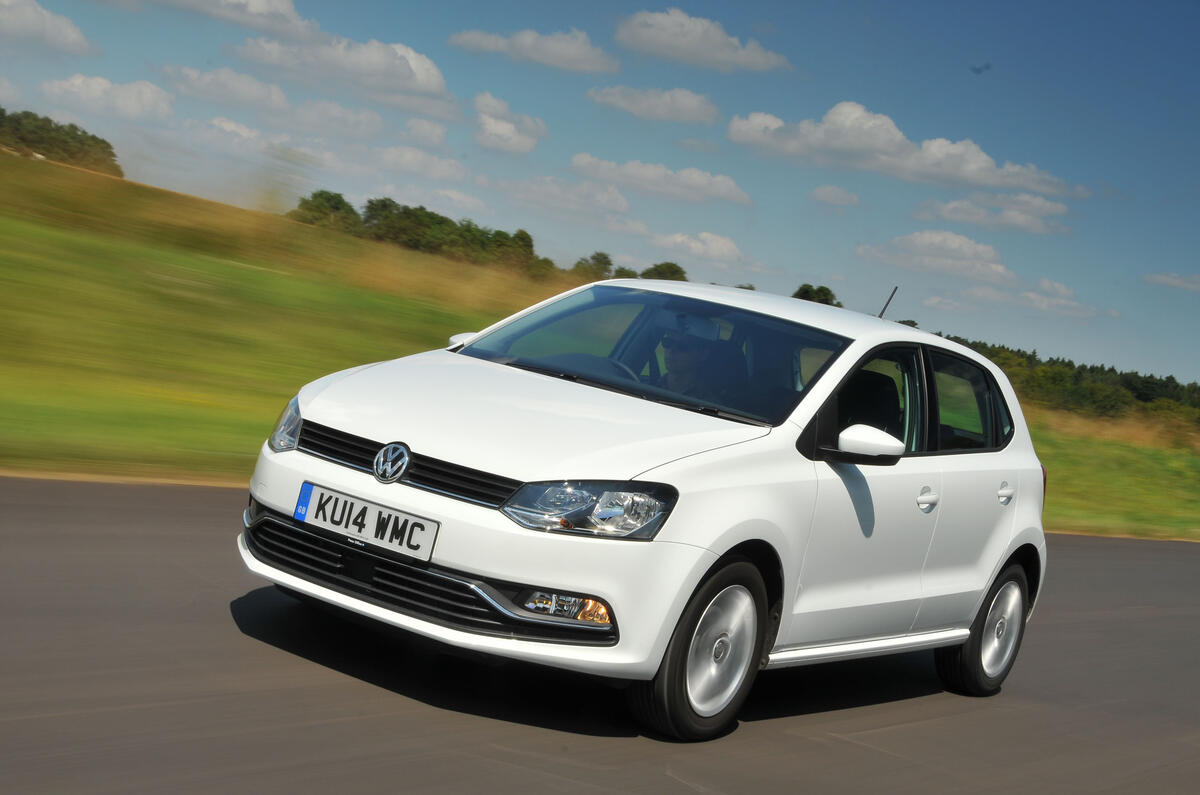Volkswagen has halted development of a turbocharged 1.5-litre four-cylinder originally scheduled for 2018 in the upcoming sixth-generation Volkswagen Polo, in favour of a new petrol-electric mild hybrid driveline.
The new aluminium block high-pressure common rail unit was planned to form part of a new small engine offensive by Volkswagen, in combination with the recently unveiled turbocharged 1.5-litre four-cylinder direct injection petrol unit launched in the facelifted seventh-generation Volkswagen Golf.
However, high engineering costs coupled with ever tougher CO2 and NOx emission standards, and waning demand for diesel engines in Europe’s B-segment, in the wake of the dieselgate scandal, has led to Volkswagen abandoning its original small diesel engine strategy and switching its engineering focus to small capacity petrol-electric hybrid drivelines instead, according to the German car maker’s head of research and development, Frank Welsch.
Speaking at the launch of the new Golf in Spain last week, Welsch singled out the high cost of developing an effective after treatment system for a successor to today’s turbocharged 1.6-litre four-cylinder diesel – the EA827, as it is known internally – as a key component in the decision for the switch in driveline strategy.
“The added cost is anything from six to eight hundred Euros in material costs just for the after-treatment system,” he says, adding, “The after-treatment system is as expensive as the engine itself. To add a diesel in the Polo, it is 25 percent of the car itself.”
Welsch wouldn’t put a definitive timeframe on when Volkswagen would cease to offer a diesel engine in the Polo and its future derivatives, including a new entry-level SUV previewed by the T-Cross Breeze concept, although he indicates the days of the existing turbocharged 1.6-litre four-cylinder engine are numbered. “Three to four years, maybe five,” said the 52-year-old German when asked how long the EA827 would be available.
Confirming Volkswagen’s plans to provide its line-up with an alternative to a traditional small diesel engine, Volkswagen’s research and development boss said: “In a time not so far away, people will go for petrol engines in combination with a mild hybrid.”
Welsch, who is overseeing the development of Volkswagen’s next generation of models, is convinced hybrids will offer an economical and viable answer to increasingly tough emission regulations. “A mild hybrid, in the end, is cheaper and has the same CO2 (as a small capacity diesel) with a lot less NOx,” he says.
Plans to fast-track the new petrol-electric mild hybrid driveline will see Volkswagen invest heavily in new electric systems similar to that already confirmed for the new Golf 1.5 TSI EVO Blue Motion. “In most cases, it will be a 48-volt system for recuperation. Our latest system develops four times as much energy in recuperation,” says Welsch.
As a consequence of the change in driveline strategy, Volkswagen has also decided to cease production of its turbocharged 1.4-litre three-cylinder diesel engine, as offered in the existing fifth-generation Polo. However, exact details as to when it will be pulled from the line-up remain unclear.
Despite abandoning plans for the proposed turbocharged 1.5-litre four-cylinder diesel engine, Welsch confirmed Volkswagen is holding firm to its widely used turbocharged 2.0-litre four-cylinder diesel – the EA288 as it is known.




Join the debate
Add your comment
Costs
Sense at last
Petrol clean?